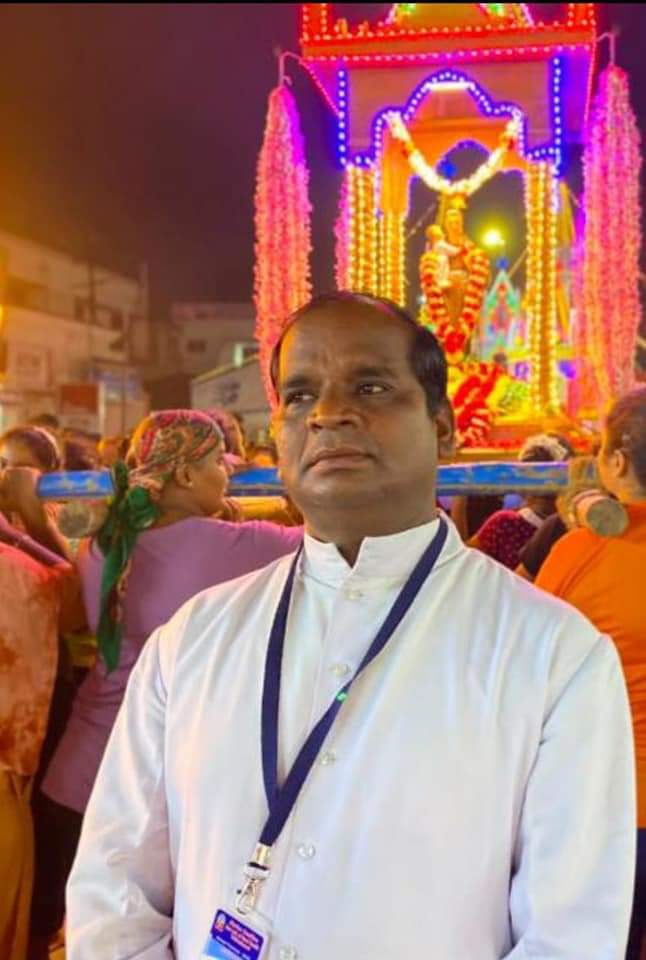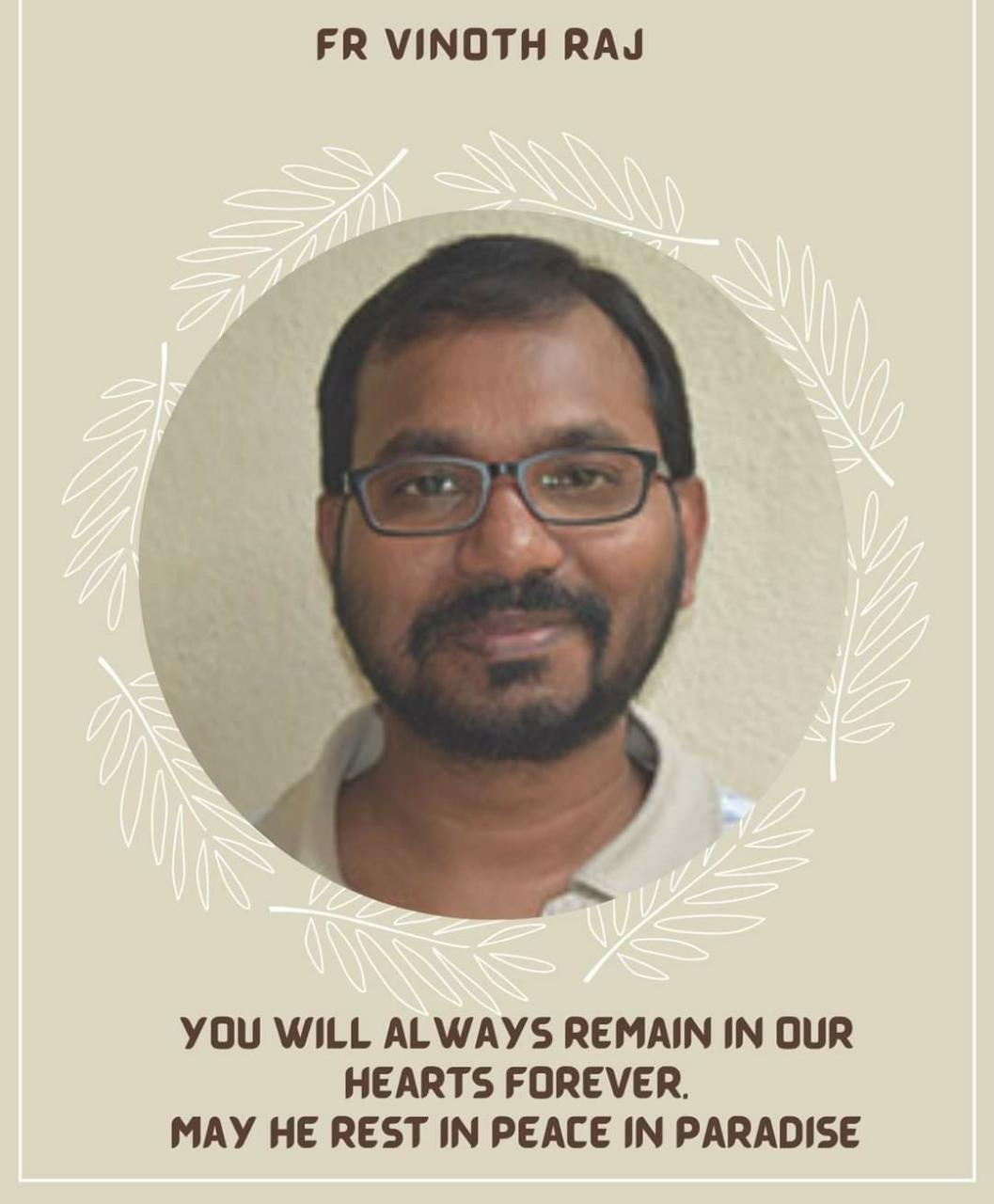By DCD Reporter
Salesian Father Arul Valan has been working for the rights of the most marginalized Thurumbar people, a Dalit community in Tamil Nadu. Through Thurumbar Liberation Movement (TLM), an NGO that he founded, Father Valan’s rallying points have been for their dignity, respect and eradication of discrimination for last two decades.
Some of the major activities the organization is carrying out from the beginning include education support for children and guidance. It enables them for alternate jobs for youth, training on leadership, life skills and legal provisions for women and men, creation of settlements and monthly ‘Sangam’ (association) meetings. It also addresses atrocity cases against the community and collaborates with other movements in taking up various causes of social importance.
Dalit Christian Digest talked to Father Valan to know more about his work with the Thurumbar community. Excepts:
What was the origin of forming the Thurumbar Liberation Movement (TLM)?
The caste discrimination and atrocity suffered by three Catholic Thurumbar (PuthiraiVannar) families of Kuruvimalai village near Polur, Tiruvannamalai district of Tamil Nadu in 2003, was the igniting factor that set in motion the TLM. The families were compelled to perform caste services which were dehumanizing and they resisted. They suffered oppression both by the dominant Dalits (Scheduled Castes) and the so-called upper castes (MBCs). Their assertion to a dignified human existence was given hand-holding support by us.
Thus the TLM was born from the battlefield for justice and equality. Seeing the success of the Kuruvimalai issue, other Thurumbars from various villages in north Tamil Nadu approached us for assistance. We felt the need for “sangams” (associations) to give them the much-needed support.
Similarly, Sr. Anthonysami Alphonsa, a member of the Franciscan Sisters of St. Aloysius Gonzaga and the co-convener, was working with Catholic Thurumbars of Sathiamangalam village of Villupuram district. They were suffering from discrimination within the parish, by way of ill-treatment during the feasts, segregation both during the festivals and in the cemetery. We joined hands and gradually 32 sangams were formed in seven districts of north Tamil Nadu, in 10 years. Thus, the TLM evolved with the collaboration of various movements such as the Human Rights Movement and other social activists.
In addition, the study of various kinds of literature brought to my notice, that this community was treated as ‘not worth seeing’ or unwanted before 1932. The reference of Dr. B.R Ambedkar about the plight of this community in his biography and various articles that appeared in the magazines, in particular, the Dalit Murasu in 2001, compelled me to take up their cause. The guidance and support of social activists like comrade Prakash, SaroValan, Lucy and later Geetha strengthened us to take this movement forward.
What are the guiding principles behind the movement?
The TLM is focused on the abolition of compulsory caste services which is bonded labour, perpetrated in the name of caste. This will free their mind, soul and body to live a life of freedom and dignity.
At the same time, we also promote the education of the children so that the next generation is free from oppressive ambient and deplorable situations. TLM also encourages alternate employment for men and women, espouse life and technical skills for youth. It seeks to claim their rightful share in the decision making processes and organizations.
Who are the people behind it?
The movement is for the people, by the people and of the people. All the decisions are taken democratically through consultation, dialogue and discussion. But the persons who are executing the decisions and activities are led by the convener and co-convener of TLM. Four persons work as full-time field workers. Volunteers in every sangam take the lead in addressing the issues people face.
How does it operate?
Every Sangam in the TLM meets once a month, in a fixed place of their convenience. Thurumbars from nearly 15-20 villages form a sangam. The sangam discusses various atrocity issues the people encounter and plan strategies to address them.
Besides, the education of children, various government schemes and government offices, issues of political and social importance are discussed. Training on leadership, self-employment and laws are also conducted for the members. They contribute monthly subscription, which is used for common expenses like visits to the government offices and participation in various protests by other collaborating organizations.
What are some of the achievements of TLM?
The TLM has managed to stop the compulsory caste bonded labour suffered by the community for centuries, wherever the movement is active. The community which remained unnoticed or unseen by the government and the civil society was brought to the limelight. It has addressed over 100 cases of atrocities against the community. It has helped hundreds of children by way of education support, camps and exposures. Many of them are well placed in society.
We have conducted small surveys and helped the Master of Philosophy and Ph.D. research students by providing resource materials and field assistance.
We have created four settlements at Arni, Polur, Pothuvai and Gedilam.
In 2009, the Tamil Nadu government formed the PuthiraiVannar Welfare Board, due to our continuous efforts.
The National Human Rights Commission (NHRC) directed the state government to do a study and present the report about the bonded labour conditions of this community, taking cognizance of our petitions in 2013.
TLM released “ECHAM MICHAM,” a documentary film on the community, in 2014.
Thurumbar Community Development and Research Center at Gingee, Villupuram district, a unique and first of its kind in the state, was established in 2015.
TLM has networked with various religious congregations like the Salesians, the Gonzaga nuns, the Jesuits and various other human rights organizations and activists, and collaborates for the cause of this community’s welfare.
What has been your experience so far working with it?
In my 20 years of involvement in the lives of this community, I have experienced the simple and magnanimous love of the people. Their lives are one with nature. Most often their habitation is at the far end of the village. They have very simple food; have always been a motivating factor in the life of the movement. The community has accepted me with my strengths and more so my weaknesses.
My experience has also been one of a battle. I have been battling with a soul, psyche and a body suppressed and made to feel that it is nothing worth the dignity and life of a human being…a psyche that has been made to think that it has to be always subservient to others…a human being that has been denied the rightful and due human existence. It has been a herculean task of instilling hope, confidence, self-worth and motivation. I think this battle for the realization of the full human persona, which is God’s image and likeness, has to continue for another century to right the wrong of the past oppression.
Another battle I have been fighting is with the Church and the government. The battle against the government seems to be easier compared to the battle against the Church (rock). The government has responded on some positive note by establishing a welfare board for this community. But even after 20 years of battle, the Church in Tamil Nadu has not come out with a policy to redeem the Thurumbar community out of this dehumanizing, bonded labour situation.
The Catholic PuthiraiVannars have been counted as mere numbers in the Tamil Nadu Church and not treated as brothers and sisters in Christ. This situation has not only left the PuthiraiVannars with a wounded psyche and soul but has left the whole Church wounded. Only when the Church in Tamil Nadu has brought them out of this oppression and restored their human dignity, can it claim to be a Church of Christ.
In this process, economic empowerment is only secondary. The prime focus has to be the redemption of the soul and psyche of this ‘anawim of Yahweh’ (‘anawim’ is a Hebrew word from the Old Testament which means the “poor ones”).
What are the challenges you or TLM has faced and how did you overcome them?
I have highlighted a few challenges above. Many people have accepted oppression as a norm of society. Hence motivating them towards a more just and egalitarian society is a big challenge.
A few individuals from among them who have come up, dominate others. A ‘we-feeling’ which is the core of the community empowerment process needs to be instilled in them. Their social conditions have made them fight against oppression as individuals and not as a community.
The promotion of leadership in the community is a big challenge. Nearly 45% of the Thurumbar community is Catholic. But the Catholic Church has not come out with a specific policy to get them out of this bondedness. The Church has contended itself with some charity works like construction of houses for them, loans to buy cows, goats and some education support.
One of our biggest challenges is the Catholic Church in Tamil Nadu. Many more religious congregations have to come forward to work with and for this community, till equality is achieved within the church.
The Thurumbars are a minuscule minority and so their votes do not count. Another big challenge is with the government. The parties need to take note of the Thurumbar community and work out policies with more allotment of funds.
What are the plans of TLM?
More sangams are to be formed in north Tamil Nadu.
More concentration is to be given to the education of the children. Since they are dispersed in almost all the villages in the state, and most of the children are studying in the government schools, a mobile training center and library are being envisaged to reach out to the remote villages.
To make the youth of this community self-reliant and self-employment training is planned.
The land right is basic to every oppressed community. We need to create small Settlements of 30 families each, with cooperative farming processes.
Fight for intra-reservation within the 18% for the Scheduled Castes, in line with the 3% reservation already enjoyed by the Arunthathiar community.
A revolutionary model of collaboration is needed at the TLM Gingee, wherein the leadership will be taken up in rotation by various congregations and the leaders of the Thurumbar community.
Please tell us more about yourself.
I am a Salesian belonging to the Chennai province. I was born in Karaikudi on May 31, 1970. I did my middle school in a Catholic school and joined Don BoscoThanjavur in 1982.
As a cleric, I had three years of working at Don Bosco AnbuIllam, Chennai, with the street children. This experience strengthened me a lot.
I did my Bachelor’s degree in Sociology at Loyola College, Chennai. I got gold medals for two years.
The by-pass heart surgery in 1996 during my first year of Theology at Sacred Heart Seminary Poonamallee, gave me a second lease of life. This God-experience has made me choose Jn 10:10 as my ordination motto: “…that they may have life, life in fullness.”
To date, I am trying to share this fullness of life with all, especially the most marginalized Thurumbar community.





CONGRATS Fr. Arun Valan SDB. Your commitment to the marginalised community inspires me a lot. Keep going ….All the best!
Great Inspiration.May your dream come true Father
Accompanying the really needy in the society reflects the incarnational spirituality. Your dedicated, persistent pursuit to bring new life to these caste ridden, untouchables, worse still unseeables is not only praise worthy but deserves national reward and recognition. I am reminded of the gospel golden rule “Do unto others what you like others do unto you”. And Jesus own words “Whatever you do to the least of these you have done to me”. God bless your efforts to bring liberation to our suffering people.
God bless you and the work of your hands